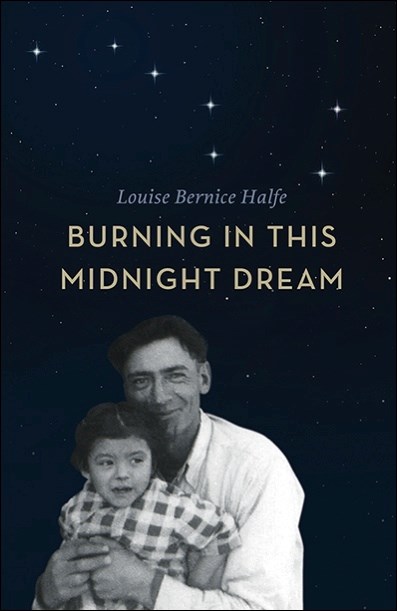By Louise Bernice Halfe
Published by Coteau Books
$16.95 9781550506655
Burning in this Midnight Dream by Louise Bernice Halfe is a book of poetry contrasted by photographs, centered around the truth and reconciliation process. In her preamble, Halfe states the book is intended to “share more of that truth. Think of all the children, and weep. Children fed to pedophile priests and nuns. Children whipped and starved. Families and communities destroyed ... courtesy of the Canadian government. Courtesy of the Canadian public.”
Halfe bravely records her memories, of being at residential school, the effect it had on her and others, and how those experiences have stained life afterward.
She struggles between reluctance and desire to share her knowledge. In the acknowledgements, she writes, “I would not have written this story if it wasn’t for the interest of my children ... and my need to describe a history that remains present.” The poems recoil through time and space, comprising a glimpse as opposed to a complete narrative. “I know this landslide / is hard to bear. I’ve pulled the stink weeds for you / to ingest.” Halfe includes her own trepidations, about the act of sharing these stories, into the poetry, like a chorus (from age old plays), like a conscience.
Halfe examines some of what was lost. “It was like sending us / to a foreign land, no familiar landscape, / no map to follow. We were stripped / of our clothes. / Stripped of our parents, / brothers, sisters, / nohkôm, nimos ô m / uncles, aunts / songs of the Cree, stories of our birth / the dances of the spirits. / Pipes and Lodges.” The Cree above is for grandmother and grandfather. She was taken from her people, and her culture, yet she suffered much more loss. “It never occurred to me to write my family / forgot they existed. Never received a letter, / a telephone call, but after so many years / of isolation I’d come to expect this and even / expecting this, was unexpected.” That last line transports the scene into the present, adding immediacy. “Years ago I visited the graveyard on the reserve / and counted all the dead / from residential school ... suicide, murder, trauma, fire.”
Truth and reconciliation may or may not be possible, but the pain of the past doesn’t go away, not completely. “Hibernating memories crawl from their den.”
The images of her family provide range and texture to the overall effect of the book. As shown, the poems are mostly in English, sprinkled with a few Cree words, demonstrating that children in residential schools were forced to leave their own language behind, among many other aspects of their lives and their culture. The writing is courageous and complex, sometimes full of clarity, sometimes surreal and elusive.
Halfe’s work washes over me, leaving a somber, dark, shadowy, yet oddly arresting, feeling like how music can be heartbreaking, shaming, and stunning all at once. I was struck by this book, and I do weep.
This book is available at your local bookstore or from www.skbooks.com



